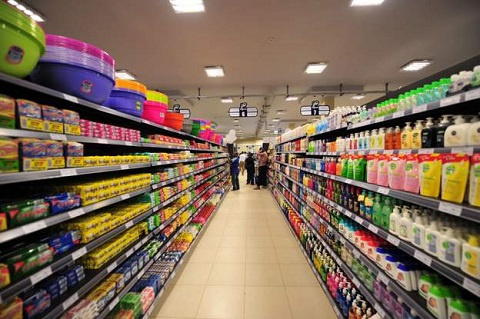
Continuous engagement with traders key
Members of the Ghana Union of Traders Association (GUTA) last Wednesday closed their shops in protest against what they described as unfavourable government policies and economic hardships directed at their businesses.
The members, who have the single largest representation of persons selling in markets, planned to continue the protest until today.
The protest, which first started in the country’s second largest commercial centre, Kumasi, was to draw attention to and register the displeasure of the traders with the rising inflation, depreciation of the cedi and high lending rates due to an increase in the policy rate by the Bank of Ghana (BoG).
Others are related to the Value Added Tax (VAT), failure to implement laws that bar foreigners from engaging in the retail business and invigilation of tax payment by officials of the Ghana Revenue Authority (GRA), among others.
The protest left patrons stranded, especially those who had travelled long distances to do business.
Considering the far-reaching implications of the protest, the government managed to engage and talk the leadership of the traders group out of their prolonged protest.
The President, Nana Addo Dankwa Akufo-Addo, set up a working committee last Thursday to swiftly come up with pragmatic measures to solve the challenges. It was made up of officials of the Ministry of Trade and Industry (MoTI), the National Security and GUTA.
The committee’s role was to ensure the suspension of the invigilation of tax payments, the fixing of exchange rates at the ports for three months and the implementation of the law that bars foreigners from engaging in retail business.
The government pledged to factor the rest of the concerns of the traders in its ongoing negotiations with the International Monetary Fund (IMF).
GUTA, on the other hand, was to ensure that its members reopened their shops last Friday, instead of today.
The Daily Graphic commends the President for showing leadership in intervening in the impasse to get members of GUTA back in their shops.
We also laud efforts by various stakeholders, including traditional leaders, to bring temporary closure to the impasse.
The Daily Graphic believes that continuous engagement with relevant stakeholders is the way to go in an attempt to fully resolve the concerns of the traders and drive the economy out of the current challenges.
In the short to medium term, the government has to inspire hope and confidence in the system by rolling out appropriate policies that will improve productivity, while finding a means to inject foreign exchange into the economy.
It is trite knowledge that in spite of the inflow expected from the Cocoa Syndicated Loan, the current situation with the supply of the dollar is nothing to write home about. Companies and individuals who genuinely need the dollar have failed to access it for days due to the shortage.
This has resulted in the resort to the unregulated (black) market, where the sources are not known, thus giving room for money laundering. The resort to the unregulated market has been contributing to the run-away depreciation of the Ghana cedi’s value as the ‘black’ market thrives on speculation.
The Daily Graphic subscribes to the position, which has been touted by many a government, including the sitting government, that the surest way to develop the economy is the long-term approach of increasing productivity, especially the agricultural sector, and using that to industrialise by adding value to the produce.
This is the only way to meet the rising local demand for goods and services and increase exports to earn the needed foreign exchange.
The Daily Graphic, which has become the leading chronicler of the country’s history, advises from where it sits that the country’s investment drive should be reviewed and intentionally pursued to attract as many Ghanaians as foreign investors into industries and the service sector.
This will ensure that the repatriation of profits occasioned by the high demand for the foreign currency does not affect the value of the local currency, as there will be enough held within the economy by the Ghanaian investors.
